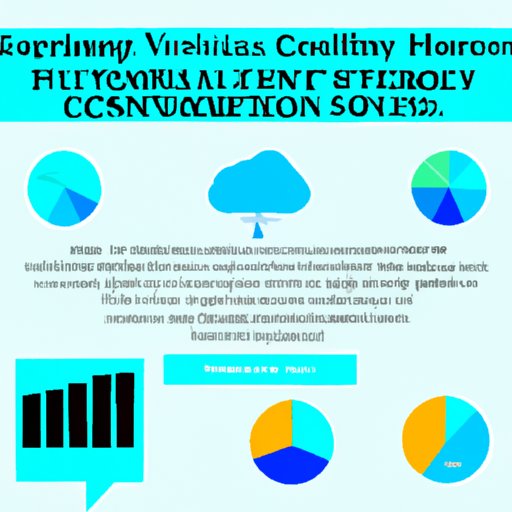Introduction
Mental health counselors are professionals who provide support and guidance to individuals and communities dealing with mental health issues. They assess and diagnose mental health disorders, develop treatment plans, and work with clients to address emotional and behavioral issues. Mental health counselors often work in hospitals, clinics, community centers, and private practices.
Mental health counselors are highly sought-after professionals and their salaries reflect their value. In this article, we will explore how much do mental health counselors make. We will look at median earnings for mental health professionals, factors that affect salaries, financial benefits, pay scale, and earnings potential of mental health counseling careers.

Exploring Average Salaries of Mental Health Counselors
According to the Bureau of Labor Statistics (BLS), the median annual wage for mental health counselors was $46,240 in May 2019. The lowest 10 percent earned less than $30,620, while the highest 10 percent earned more than $78,200.
The BLS also reported that the median annual wage for marriage and family therapists was $50,090 in May 2019. The lowest 10 percent earned less than $32,340, while the highest 10 percent earned more than $81,270.
Factors That Affect Mental Health Counselor Salaries
A variety of factors can influence the salary of a mental health counselor. These include:
- Education Level: Mental health counselors typically need a master’s degree in psychology, counseling, or social work. Those with higher levels of education, such as a doctorate degree, may earn higher salaries.
- Experience: Mental health counselors with more experience may earn higher salaries. Many employers also offer bonuses or other incentives to experienced mental health counselors.
- Location: Mental health counselors in urban areas tend to earn more than those in rural areas due to higher costs of living.
- Employer: Mental health counselors employed by nonprofit organizations or government agencies may earn lower salaries than those employed by private practices or hospitals.
Investigating the Financial Benefits of Becoming a Mental Health Counselor
In addition to the monetary rewards of becoming a mental health counselor, there are many other financial benefits. These include:
- Job Security: Mental health counseling is an in-demand profession, so job security is high. Mental health counselors are also often able to find employment in a variety of settings, such as hospitals, clinics, and private practices.
- Career Advancement Opportunities: Mental health counselors have the potential to advance their careers through additional training and certifications. For example, they may pursue specialized certifications in areas such as substance abuse or family therapy.

Uncovering the Pay Scale for Mental Health Professionals
Mental health counselors typically work full-time and may receive a variety of benefits in addition to their salaries. Here is a closer look at the pay scale for mental health counselors:
- Hourly Rates: Mental health counselors may be paid an hourly rate, which can vary depending on the employer. According to PayScale, the average hourly rate for mental health counselors is $21.37.
- Bonuses and Other Benefits: Mental health counselors may receive bonuses for meeting certain goals or milestones, as well as other benefits such as healthcare coverage, retirement contributions, and paid vacation days.
Examining the Earnings Potential of Mental Health Counseling Careers
The earnings potential of mental health counseling careers depends on several factors. Here is a closer look at some of these factors:
- Long-Term Salary Growth: Mental health counselors may be able to increase their salaries over time through additional training, certifications, and experience in the field.
- Incentives for Experienced Mental Health Counselors: Employers may offer bonuses, stock options, and other incentives to experienced mental health counselors.

Analyzing the Salary Range of Mental Health Counselors
The salary range of mental health counselors can vary significantly depending on a variety of factors. Here is a closer look at some of these factors:
- Geographical Variations in Salaries: Mental health counselors in certain states or cities may earn higher salaries than those in other areas. According to the BLS, the top five paying states for mental health counselors in 2019 were Alaska, Rhode Island, California, Hawaii, and New Jersey.
- Specialized Areas with Higher Pay: Mental health counselors who specialize in certain areas, such as substance abuse or family therapy, may earn higher salaries than those who work in general practice.
Conclusion
Mental health counselors are highly sought-after professionals and their salaries reflect their value. This article has explored how much do mental health counselors make and the factors that affect their salaries. We have looked at median earnings for mental health professionals, financial benefits, pay scale, and earnings potential of mental health counseling careers.
Mental health counselors may be able to increase their salaries over time through additional training and experience. They may also earn higher salaries in certain states or cities, as well as in specialized areas such as substance abuse or family therapy. Overall, mental health counselors can enjoy a rewarding career with excellent financial benefits.
Additional Resources:
- Bureau of Labor Statistics – Mental Health Counselors and Marriage and Family Therapists
- Psychology Degree 411 – Mental Health Counselor Career Guide
(Note: Is this article not meeting your expectations? Do you have knowledge or insights to share? Unlock new opportunities and expand your reach by joining our authors team. Click Registration to join us and share your expertise with our readers.)
